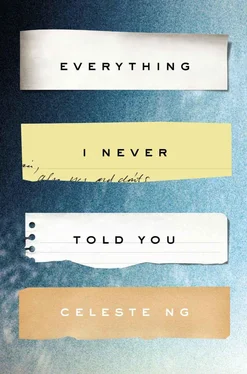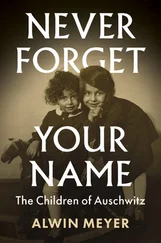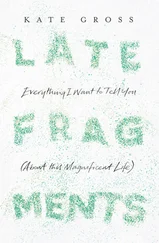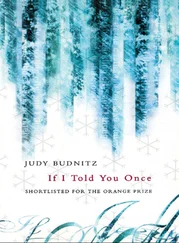“We’re holding down the fort,” James said.
“How long will she be away?”
James glanced down at the children and hesitated. “Indefinitely,” he said. Beside him, Nath kicked Mrs. Allen’s gate with the toe of his sneaker. “Don’t do that, Nath. You’re leaving a scuff.”
Mrs. Allen peered down at them, but the children, in unison, looked away. Her lips were too thin, her teeth too white. Under the heel of Lydia’s shoe, a wad of bubble gum stuck her to the concrete like glue. Even if she were allowed, she thought, she could not run away.
“You two be good now, and your mother will be home soon, isn’t that right?” Mrs. Allen said. She shifted her thin-lipped smile to James, who didn’t meet her eye. “Our groceries must be melting,” James said, though he and Lydia and Nath knew there was nothing in the bag but a quart of milk, two jars of Jif, and a loaf of bread. “It’s nice seeing you, Vivian.” He tucked the paper sack under his arm and took each of the children by a hand and turned away, and the gum under Lydia’s shoe stretched and snapped, leaving a long, dried-out worm on the sidewalk.
At dinner, Nath asked, “What does indefinitely mean?”
Their father looked suddenly at the ceiling, as if Nath had pointed out a bug and he wanted to find it before it ran away. Lydia’s eyes went hot, as if she were staring into the oven. Nath, remorseful, prodded his sandwich with his knuckle, squeezing peanut butter onto the tablecloth, but their father didn’t notice.
“I want you to forget everything Mrs. Allen said,” James said finally. “She’s a silly woman and she doesn’t know your mother at all. I want you to pretend we never even talked to her.” He patted their hands and tried to smile. “This isn’t anyone’s fault. Especially not yours.”
Lydia and Nath both knew he was lying, and they understood that this was how things would be for a long time.
The weather grew warm and sticky. Every morning Nath counted up the number of days his mother had been gone: Twenty-seven. Twenty-eight. Twenty-nine. He was tired of staying inside in the stale air, tired of the television, tired of his sister, who more and more stared glassy-eyed at the screen in silence. What was there to say? Their mother’s absence gnawed at them quietly, a dull and spreading hurt. One morning in early June, when Lydia nodded off during a commercial break, he tiptoed toward the front door. Their father had told them not to leave the house, but the porch steps, he decided, were still the house.
At the far end of the street, Jack perched on his own porch railing, chin propped on bent-up knees. Ever since that day at the pool, Nath had not spoken to Jack, not even hi. When they got off the school bus together, Nath tugged at the straps of his bookbag, walking home as fast as he could. At recess, if he saw Jack coming toward him, he ran to the other side of the playground. It was starting to be a habit, disliking Jack. Now, though, as Jack turned his head and spotted him and bounded down the street, Nath stayed put. Talking to anyone — even Jack — was better than more silence.
“Want one?” Jack asked when he reached the steps. Nestled in his outstretched palm: a half-dozen red candies, fish-shaped, the size of his thumb. Head to tail, tail to head, they glistened like jewels. Jack grinned, and even the tips of his ears perked up. “Got them at the five-and-dime. Ten cents a scoop.”
Instantly Nath was flooded with intense longing: for the shelves of scissors and paste and crayons, the bins of bouncy balls and wax lips and rubber rats, the foil-wrapped chocolate bars lined up at the front counter, and, by the register, the big glass jar of ruby-colored candy, the cherry scent wafting out the moment you lifted the lid.
Jack bit the head off one of the fish and held out his hand again. “They’re good.” Close up, Jack’s eyelashes were the same sandy color as his hair, the tips golden where they caught the sunlight. Nath slipped one of the candies into his mouth and let the sweetness seep into him and counted the freckles on Jack’s cheek: nine.
“You’ll be okay,” Jack said suddenly. He leaned closer to Nath, as if he were telling a secret. “My mom says kids only need one parent. She says if my dad doesn’t care enough to see me, it’s his loss, not mine.”
Nath’s tongue went stiff and thick, like a piece of meat. Suddenly he could not swallow. A trickle of syrupy spit nearly choked him, and he spat the half-chewed candy into the grass.
“Shut up,” he hissed. “You — you shut up.” He spat again, for good measure, trying to expel the taste of cherry. Then he stumbled to his feet and back inside, slamming the door so hard that the screen shook. Behind him, Jack lingered at the bottom of the steps, looking down at the fish trapped inside his fist. Later on, Nath would forget exactly what Jack had said to make him so angry. He would remember only the anger itself, which smoldered as if it had always been there.
Then, a few days later, the most wonderful distraction arrived — for Nath, at least. One morning Nath turned on the television, but there were no cartoons. There was Walter Cronkite, serene at his desk just as if he were doing the evening news — but it was barely eight A.M., and his desk stood outside, the Cape Kennedy wind ruffling his papers and his hair. A rocket stood poised on the launchpad behind him; at the bottom of the screen, a countdown clock ticked. It was the launch of Gemini 9 . Had Nath known the word, he would have thought: surreal. When the rocket shot upward in a billow of sulfur-colored smoke, he crept so close to the television that his nose smudged the glass. The counters on the bottom of the screen showed impossible numbers: seven thousand miles an hour, nine thousand, ten. He had not known anything could fly so high.
All morning Nath absorbed the news reports, savoring each new term like a fancy bonbon: Rendezvous. Orbital map. Lydia curled up on the sofa and went to sleep while, all afternoon, Nath repeated Gemini. Gemini. GEM-in-i. Like a magic spell. Long after the rocket faded into blue, the camera stayed trained on the sky, on the fading plume of white it left behind. For the first time in a month, he forgot, for a moment, about his mother. Up there — eighty-five miles high, ninety, ninety-five, the counter said — everything on earth would be invisible. Mothers who disappeared, fathers who didn’t love you, kids who mocked you — everything would shrink to pinpoints and vanish. Up there: nothing but stars.
For the next day and a half, despite Lydia’s complaints, Nath refused to switch to I Love Lucy reruns or Father Knows Best. He began to refer to the astronauts — Tom Stafford and Gene Cernan — by first name, as if they were friends. As the first transmission from the astronauts was patched through, Lydia heard only garbled, scratchy gibberish, as if the voices had been pressed through a grinder. Nath, however, had no trouble making out the words: Gene, breathless, whispering, “Boy, it sure is beautiful out here.” NASA had no television feed of the men in orbit, so the station aired a simulation: an actor on wires, a prop set on a soundstage in Missouri. But when the space-suited figure lumbered out of the capsule and floated gracefully, effortlessly upward — feet to the sky, tethered by nothing —Nath forgot it wasn’t real. He forgot everything. He forgot to breathe.
At lunch, while they ate their peanut butter sandwiches, Nath said, “The astronauts eat shrimp cocktail and beef stew and pineapple cake. ” At dinner, he said, “Gene is the youngest man ever to go into space, and they’re going to do the longest spacewalk ever.” In the morning, as his father poured cereal that Nath was too excited to eat, he said, “The astronauts wear iron pants to protect their legs from the boosters.”
Читать дальше












